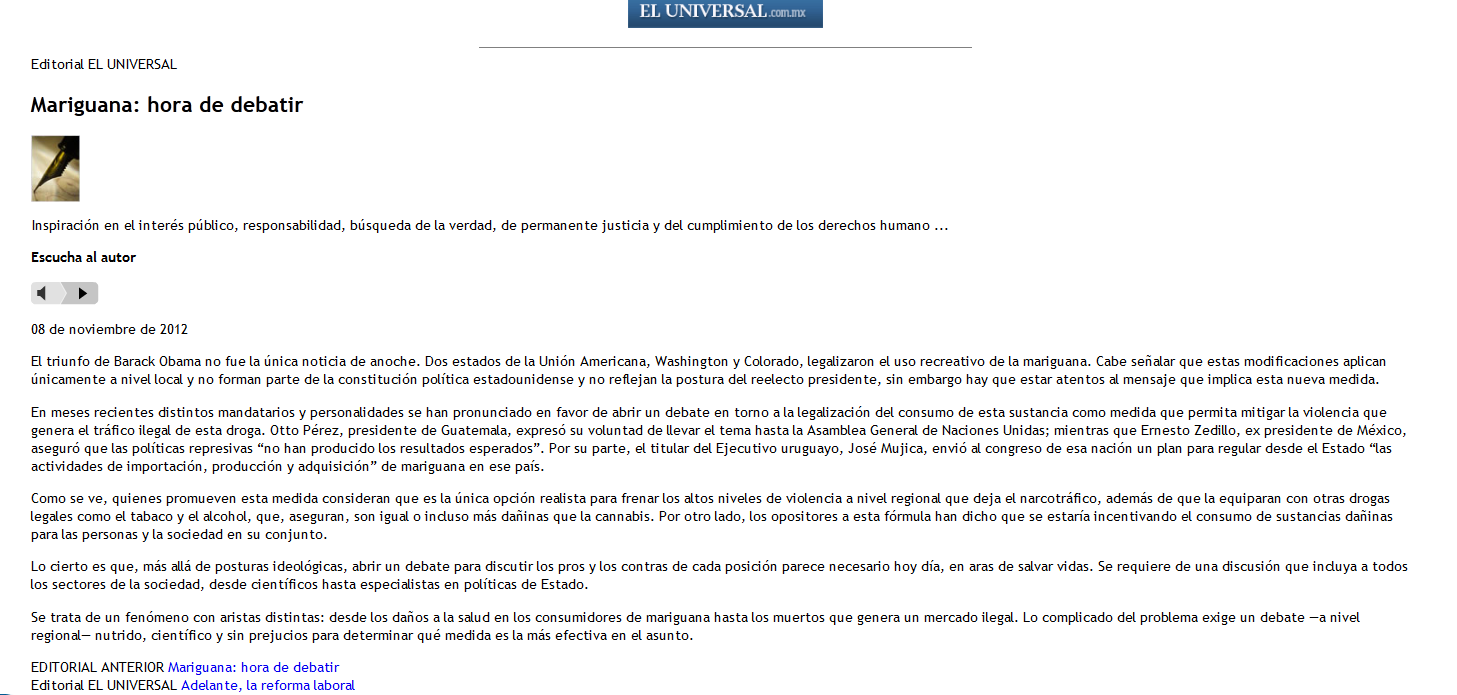Marijuana: Time to Debate
In recent months, different leaders have come out in favor of opening a debate regarding the use of marijuana as a measure to mitigate the violence that illegal trafficking generates. Otto Pérez, president of Guatemala, expressed his willingness to take the matter all the way to the U.N. General Assembly. Meanwhile, Ernesto Zedillo, ex-president of Mexico, asserted that repressive policies “have not produced the expected results.” For his part, Uruguay’s head of state José Mujica sent the Uruguayan Congress a plan to regulate “activities of importation, production and acquisition” of marijuana in that country.
As we can see, those who support this measure consider it to be the only realistic option for putting a stop to the high levels of drug traffic-related violence in the region. They also equate marijuana with other legal drugs, such as tobacco and alcohol, which they assure are equally or even more harmful than cannabis. On the other hand, those who oppose this formula have said that it would be an incentive for people to consume substances that are harmful both to individuals and society.
Beyond all ideological stances, the fact is that at this point an open debate on the pros and cons of each position seems necessary in the interest of saving lives. It is essential to have a discussion that includes all sectors of society, from scientists to specialists, in national policy.
It is a thorny issue, with many dimensions — from the negative health consequences of marijuana consumption to the deaths that an illegal market generates. The complexity of the issue calls for a debate — on a regional level — that is rich, scientific and without prejudice in order to determine which measure is the most effective.

